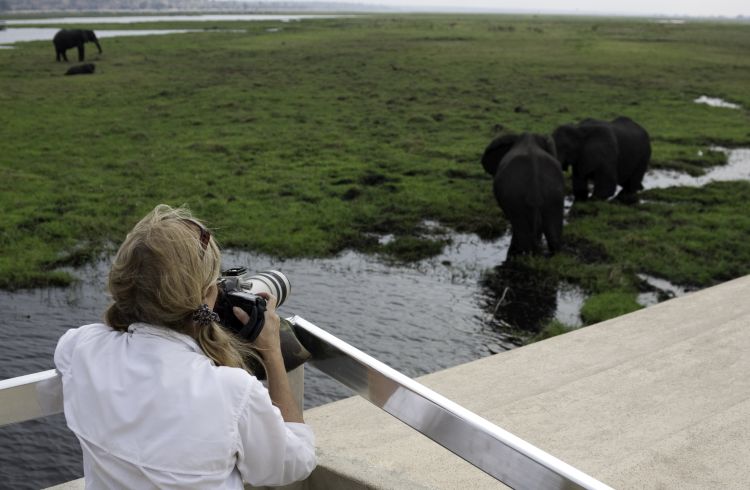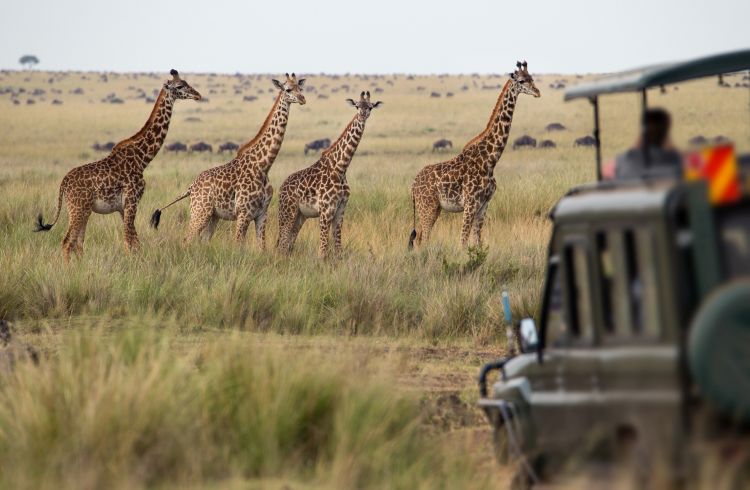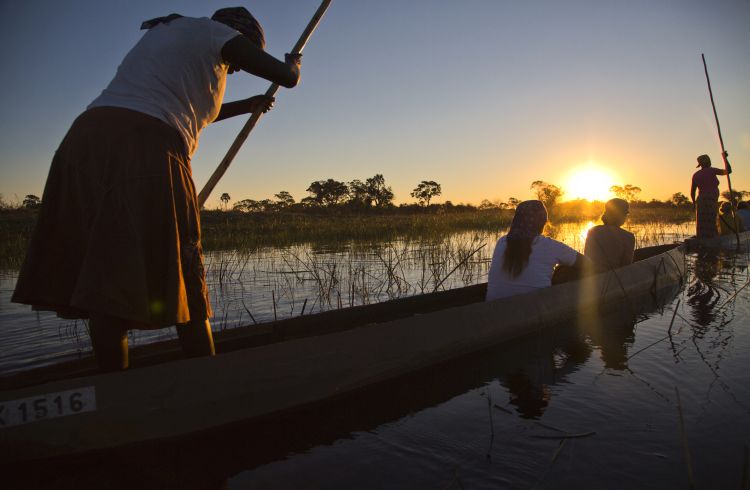Animals in Botswana: How to Be an Ethical Traveler
The animals of Africa belong in Africa not on the wall in someone's lounge room. We take a look at how you can be an ethical traveler and avoid buying the wrong kind of souvenirs.
 Photo © Getty Images/nicolamargaret
Photo © Getty Images/nicolamargaret
Botswana's shadow
Botswana is a nation blessed with some of the most incredible natural wonders – The Okavango Delta, the Kalahari and the Makgadikgadi Salt Plains – and remains some of Africa's must-see destinations.
Along with the natural beauty, Botswana's animals are abundant and stunning. The game parks hold on the world's best collection of animals in Africa today. But, while many make a living off guiding tourists to see the animals in their habitat, there is a trade in animal skins and hunting, which sits like a shadow over the country.
Botswana's trade in animals
Canned hunting
A sad truth of Botswana is the presence of hunting safaris aka canned hunting, it's an awful throwback to a bygone era but one which is still accepted.
Wealthy tourists can shoot game still, but in most traveler circles this is frowned upon. Take aim with a camera, not a rifle.
Thankfully, the hunting of lions is explicitly prohibited and leopards and elephants are covered under a strict quota regime.
But it has been known for a lion to fall under the sights of a hunter. The government though does not look kindly on anyone wanting to do this without a permit.
Animal trophies and other curios
Botswana strictly enforces its laws controlling the trade in animal products. Poaching is a major crime and some poachers are killed in the pursuit of their profession.
It's not rare to see the result of a poacher's work in Africa, and it's the unfortunate truth of the continent.
Botswana's Wildlife Conservation and National Parks Act makes it illegal to possess or remove from Botswana without a government permit any living or dead animal or animal trophy.
A trophy is any horn, ivory, tooth, tusk, bone, claw, hoof, hide, skin, hair, feather, egg, or other durable portion of an animal, whether the item has been processed or not.
Do yourself a favor and respect these laws. Take a photo home, not a tusk. You may want to return one day, so you will wish your return to be as amazing as your first trip.
Curio shops and vendors throughout the country sell items such as animal skins, plain and decorated ostrich eggs and eggshells, and carved bones or teeth of animals protected by this law. All of the souvenirs, although widely sold, are subject to this act.
Travellers departing the country with a trophy must have a receipt from a store licensed to sell such items.
Ivory and endangered rhinoceros horn products obtained in Botswana may not be removed from the country under any circumstances.
Elephant hair jewelry may be removed only with the appropriate license from the Department of Wildlife and National Parks.
Trophies may not be taken from the wild without a permit. Violators are subject to arrest and may face a penalty of up to five years imprisonment and a substantial fine.
But as a rule remember to leave the animals in Africa, for fellow travelers to admire and avoid buying any animal products. It's all part of responsible travel.
If people continue to buy animal goods, then the trade in animals will continue.
Related articles
Simple and flexible travel insurance
You can buy at home or while traveling, and claim online from anywhere in the world. With 150+ adventure activities covered and 24/7 emergency assistance.
Get a quote

1 Comment
My 8 years old son also loves outdoor archery, he always gets ready to go to try something new with compound bows and arrows. I would really appreciate the author of this post for sharing his experience with us. You can <a href="http://animalnewyork.com/">go to new place</a> if you need some more exciting stories.